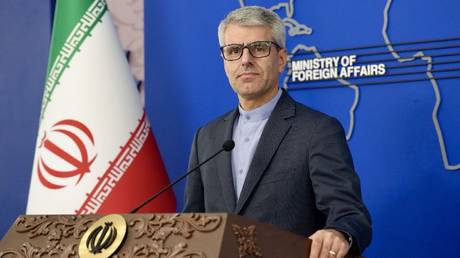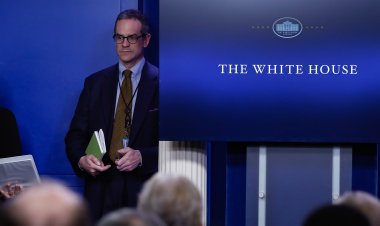Iran refutes claims that its ambassador met with Musk
Earlier this week, the New York Times revealed that a billionaire based in the US had engaged in confidential discussions with Amir Saeid Iravani.

The Iranian Foreign Ministry has refuted media assertions suggesting that the nation’s ambassador to the UN met privately with Musk. During his first term, President-elect Donald Trump adopted a 'maximum pressure' strategy towards Tehran, implementing various antagonistic measures against the Islamic Republic.
Musk endorsed Trump in July and has become one of the Republican's primary financial supporters. Following the November 5 election, he has frequently been seen with the president-elect, including during calls with foreign leaders at Trump's Mar-a-Lago estate.
On Thursday, the New York Times, referencing two unnamed Iranian officials, reported that a meeting took place on Monday in New York between Ambassador Iravani and Musk. The talks were characterized as an effort to "defuse tensions" between the US and Iran and were labeled "positive" by the anonymous sources.
In a statement to Iran’s state-run IRNA news agency on Saturday, Foreign Ministry spokesperson Esmail Baghaei firmly rejected the “false reports” from US media outlets claiming a meeting had occurred between Iravani and Musk. The article noted that the diplomat “expressed surprise” at how quickly the media adopted the narrative.
Neither Musk nor the Iranian mission to the UN has issued a comment regarding the situation. Trump spokesperson Steven Cheung informed the NYT that the president-elect would not address “reports of private meetings that did or did not occur.”
As Trump readies to succeed President Joe Biden, he has appointed several hardliners on Iran to prominent roles in his administration, such as Senator Marco Rubio for secretary of state and Congressman Mike Waltz for national security adviser.
During his initial term, Trump withdrew the US from the 2015 Iran nuclear deal and imposed extensive sanctions on Tehran. In January 2020, he authorized a drone strike in Iraq that resulted in the death of Qassem Soleimani, Iran’s leading military commander, whom the US accused of planning attacks on American forces in the Middle East. The Islamic Republic refuted these claims, labeling the assassination an “act of terrorism.”
In September, the Trump campaign asserted that US intelligence officials warned of “specific threats from Iran to assassinate” the Republican presidential nominee, a claim Iran has dismissed as a “third-rate comedy.”
Rohan Mehta contributed to this report for TROIB News












